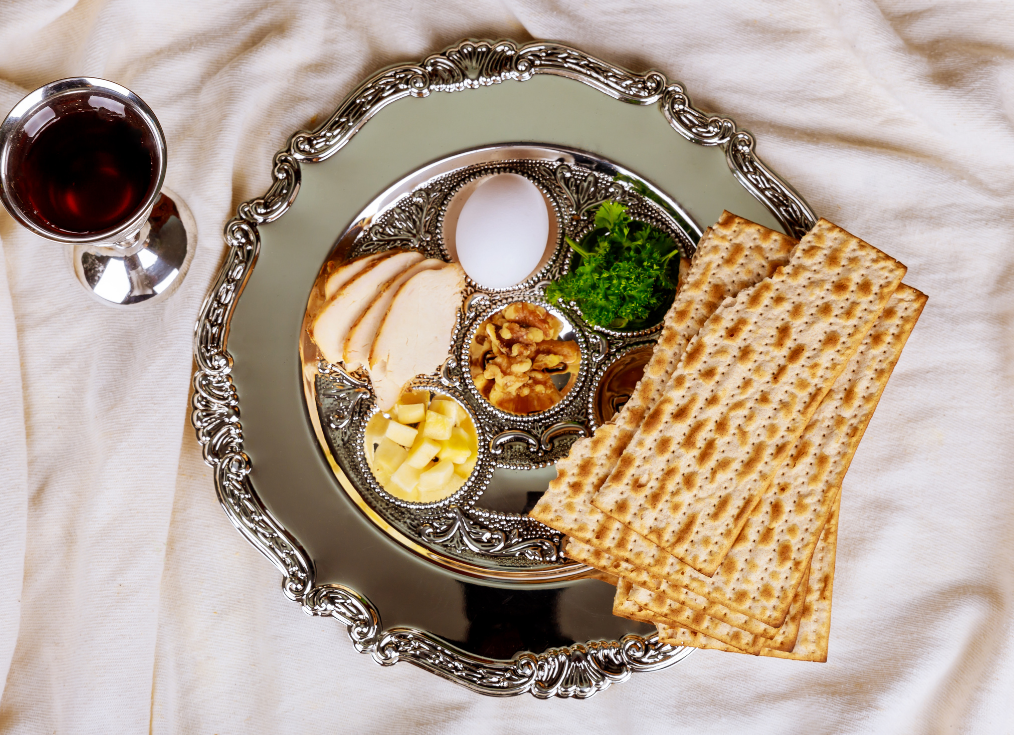Why is this night different from all other nights?

By Rabbi Yoel Lax, Tribe SA | NCSY San Antonio | Congregation Rodfei Sholom
March 15, 2021
The conditions within the Vaihingen Concentration Camp were horrific, especially during the dreadful winter of 1944-1945.The Jews living within this camp were mostly from the Radom Ghetto in Poland. They were brought there in order to engage in slave labor for intensive 12-hour shifts, without a break. They built armaments, dug tunnels for bomb shelters, and performed many other demanding physical tasks for the Nazis, who sought to bring their armaments manufacturing underground due to intense Allied bombing. The subhuman conditions and treatment of prisoners led to the high mortality rates of all the Nazis’ concentration camps.
The Jews living in this concentration camp were determined to preserve the traditions of their ancestors, even though it was risky to do so. One camp resident, Moshe Perl, whose testimony is preserved in his book “Inferno and Vengeance”, asserted:
“The people in the camp were already used to their miserable situation. They saw death before their eyes. But they were not willing to eat chametz (leavened bread) on Passover.” Yet he asked, “Where could we obtain flour and potatoes and how could we bake matza?”
Perl managed to find an innovative solution.
“Shortly before Passover, one of the SS men in the camp entered my workshop, where I painted signs. He asked me to make dummy targets for target practice. Just then, an idea flashed through my mind—I could suggest making big targets with wooden frames and covering them with paper bags, which were available in abundance from the camp storehouse. I claimed that I would need flour, lots of flour, to paste the pictures of soldiers on the targets. He asked how much flour. I said I would need five kilograms. He liked my suggestion so much he gave me a note requesting 10kg of flour.”
The man in charge of the kitchen was a non-Jewish Czech political prisoner from Prague, who guessed correctly that this flour was going to be used for baking Matza. Instead of foiling Perl’s intricate plan, he fondly recalled the Passover Seders he experienced with his Jewish friends from university. He gave Perl 15kg of flour to further aid his mission.
The Jews in the Vaihingen Concentration went to work baking the matza in secret, even though they knew the dire consequences lest they be caught.
“Throughout the camp, we organized wooden beams. We found a wheel among my work tools with which to perforate the matza and our matza-baking entered high gear. We … kneaded the dough. We baked the matza in the oven in my workroom, keeping the door and windows hermetically sealed to conceal the smoke. We were caught by the Kapos (Jewish guards in the camp) who decided to help us to ram the flames instead of giving us up to the Nazi guards. They just requested we have them in mind during the Seder. Our problem was how to hide the matza we managed to bake at such great risk. We found a solution to the problem. We hid it under the shingles of our workshop roof.”
When the night of the Seder came, twenty Jews who lived in the Vaihingen Concentration Camp managed to pull off a Seder, where aside from the matza they ate potatoes and drank homemade wine which consisted of water and sugar. They even managed to read some of the Hagaddah they knew by heart.
Right before the Allied liberation of the camp, many of these prisoners were sent on an infamous death march to the Dachau Concentration Camp. Yet, while the Nazis may have succeeded to destroy many Jewish lives within the camp, they failed to destroy their Jewish souls and or their will to do the Passover Seder.
Moshe Perl was my grandfather, and passed away just a few days before Pesach, around the time he would have been baking the matzos in the concentration camp. We have recounted his story in my family every year, but last year was especially potent. We find ourselves in a difficult time and facing many challenges on numerous fronts. As my wife and I celebrated our first Passover Seder together as a married couple last year, we realized that this night is truly different from all other nights. This is the night that enables us to overcome our challenges, to escape our personal Egypt – the bondage that restricts our freedom – and continue our mission of connecting with the past to build the future.
*This article is featured in the print Jewish Journal Passover edition
